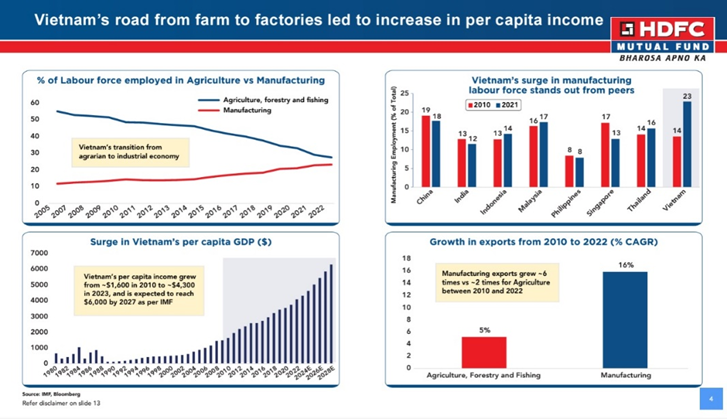CAGR Insights is a weekly newsletter full of insights from around the world of web.
| Index | 31-May-24 | 24-May-24 | Change |
| Nifty 50 | 22,531 | 22,957 | -1.86% |
| Nifty 500 | 21,103 | 21,484 | -1.77% |
| Nifty Midcap 50 | 14,443 | 14,663 | -1.50% |
| Nifty Smallcap 100 | 16,697 | 16,883 | -1.10% |
Chart Ki Baat

Source: RBI
Here’s the list of curated readings for you this week:
Personal Finance
- Letting Go of Sentimental Clutter- Embracing Minimalism and Present Joy: The passage discusses emotional attachment to physical objects, emphasizing the negative effects of hoarding and reluctance to let go. It advocates minimalism and enjoyment of assets in one’s lifetime. Read here
- The Quiet Power of Thought- Rethinking Productivity in the Modern Workplace: John D. Rockefeller’s belief in internal contemplation over visible labor highlights the importance of quiet, reflective thinking in producing good work, especially during idle moments. Read here
- Importance of Inheritance Planning in Personal Finance: In a NDTV Profit discussion, Alex Matthew and Stran Financial Services CEO Theal Sen emphasized the significance of inheritance planning, legal consequences, nominee vs. legal heir distinction, and executor role. Watch
- Redefining Career Paths- Embrace Flexibility: Mistaking patterns for rigid rules in career paths, graduates often box themselves into specific trajectories based on initial job choices. Career paths need not be linear, and skills determine possibilities, not job titles. Read here
Investing
- Untold Truths and Essential Insights- Navigating the Complexities of Insurance with Mahavir Chopra: Mahavir Chopra, an insurance expert, discussed insurance complexities, shifting from sales to claims, intermediaries’ role, misleading rules, and recommending knowledgeable advisors, smart contracts, and regular policy reviews. Watch
- SEBI Order Reveals Varanium Cloud’s Misconduct: The SEBI order against Varanium Cloud Limited and its promoter, Harshawardhan Sabale, revealed serious misconduct, including misuse of IPO funds, false financial reporting, and share price manipulation. Read here
- IRDAI’s New Health Insurance Guidelines: IRDAI has released a master circular on health insurance, aiming to enhance policyholder empowerment, improve service standards, and ensure compliance with Ombudsman awards. Read here
Economy
- RBI’s Record Dividend- A Boost for Government Finances Amid Economic Challenges: The Reserve Bank of India’s 2.1 trillion rupees dividend to the Indian government is under scrutiny due to potential one-time gains and potential sustainability concerns, potentially supporting fiscal financing and social welfare. Watch
- How South Korea Became the World Leader in Internet Connectivity Through Visionary Leadership: South Korea achieved 93% internet access by 2022, thanks to visits by SoftBank founder Masayoshi Son and Bill Gates, earning it the title of ‘bandwidth capital of the world’. Read here
- RBI Brings Gold Home- A Historic Move: The Reserve Bank of India has transferred over 100 tonnes of gold from the UK to its vaults in India, marking its first significant addition since 1991, with another transfer anticipated. Read here
****
Check out CAGRwealth smallcase portfolios.
Both our smallcase portfolios are ranking well in the smallcase universe in terms of 1 year returns.
• CFF (launched in June 2022) – Ranked among Top 20 smallcase with medium volatility.
• CVM (launched in May 2022) – Ranked among Top 40 across the smallcase universe.
Do check it out here
****
That’s it from our side. Have a great weekend ahead!
If you have any feedback that you would like to share, simply reply to this email.
The content of this newsletter is not an offer to sell or the solicitation of an offer to buy any security in any jurisdiction. The content is distributed for informational purposes only and should not be construed as investment advice or a recommendation to sell or buy any security or other investment or undertake any investment strategy. There are no warranties, expressed or implied, as to the accuracy, completeness, or results obtained from any information outlined in this newsletter unless mentioned explicitly. The writer may have positions in and may, from time to time, make purchases or sales of the securities or other investments discussed or evaluated in this newsletter.



